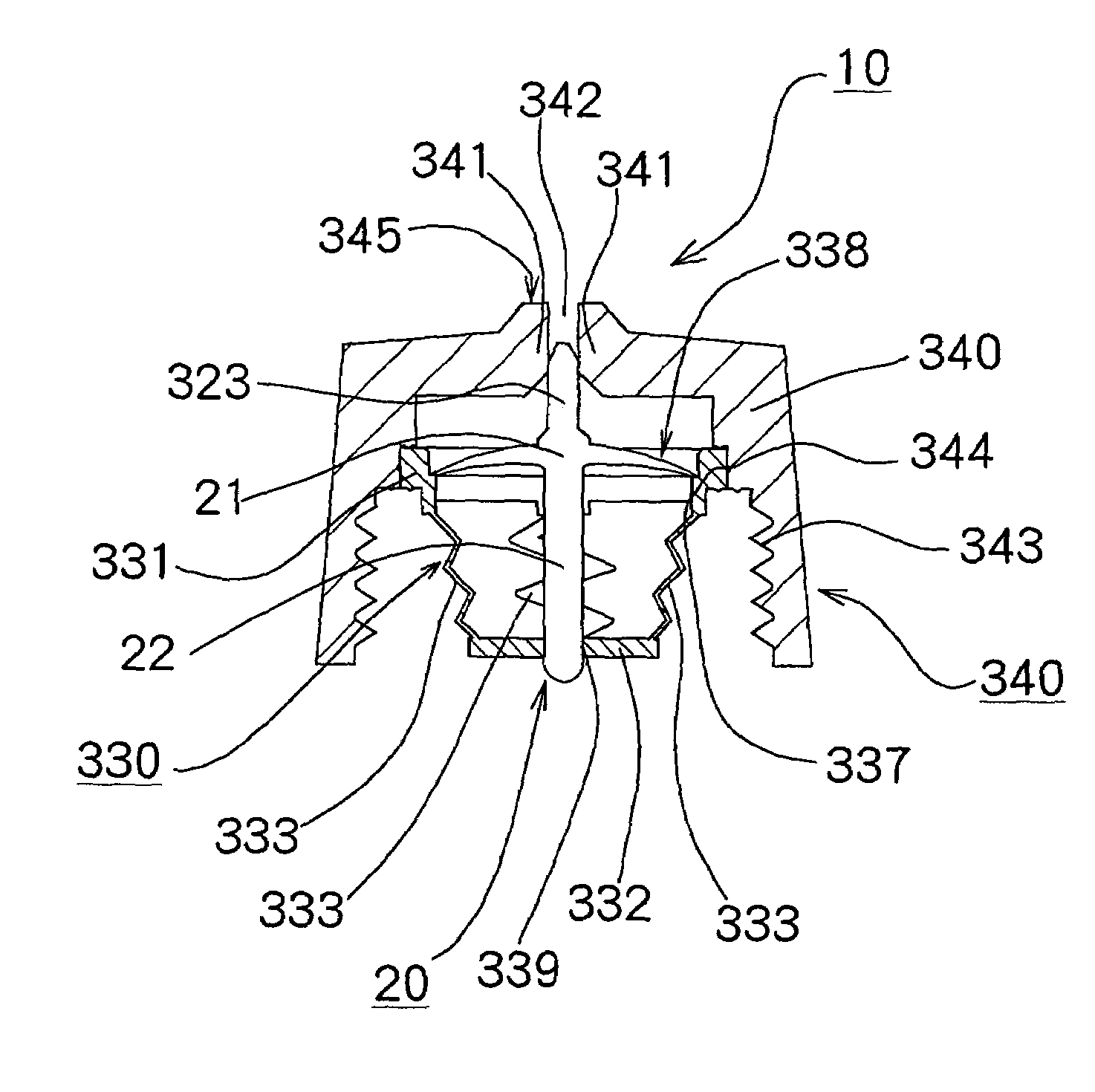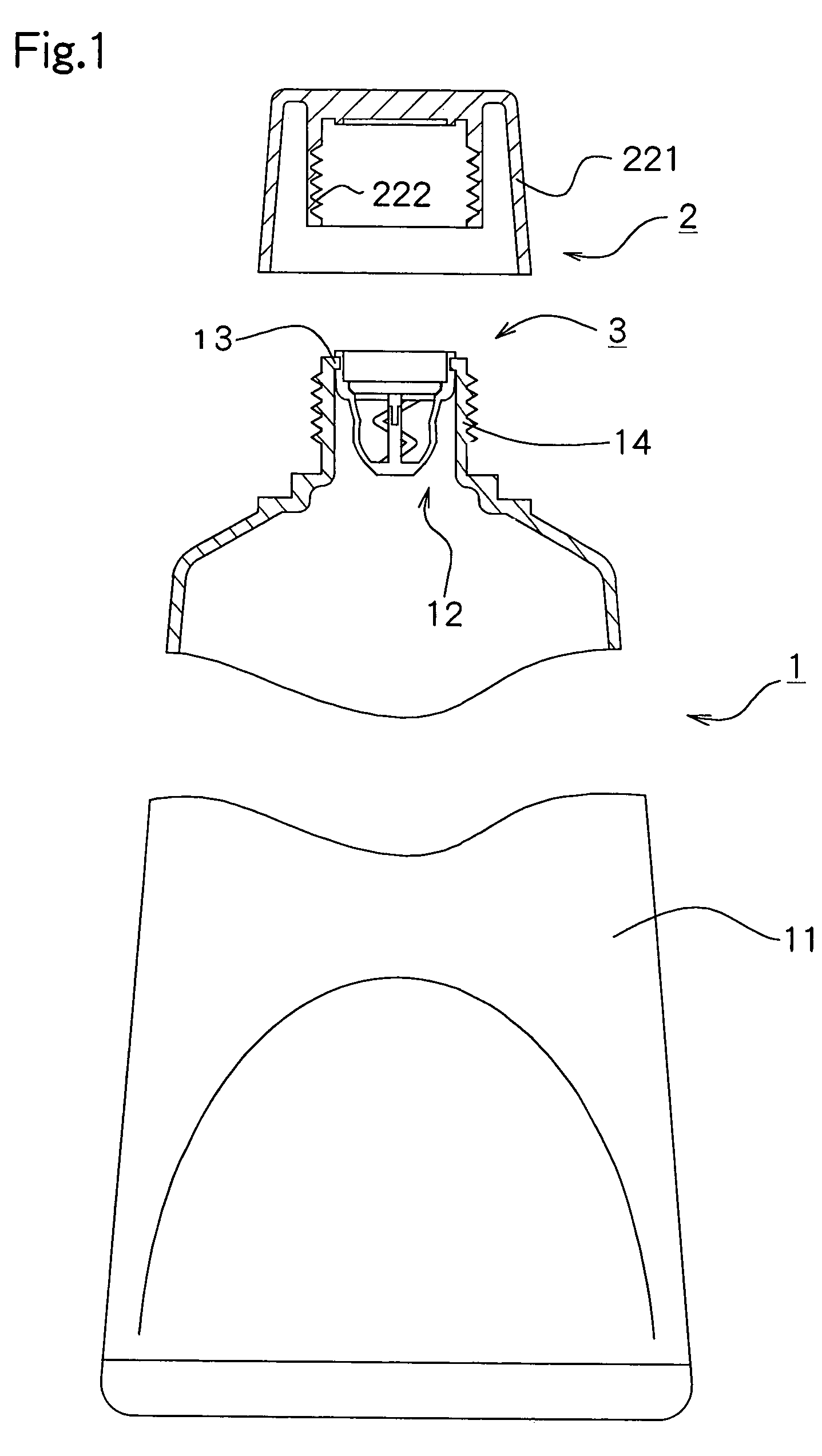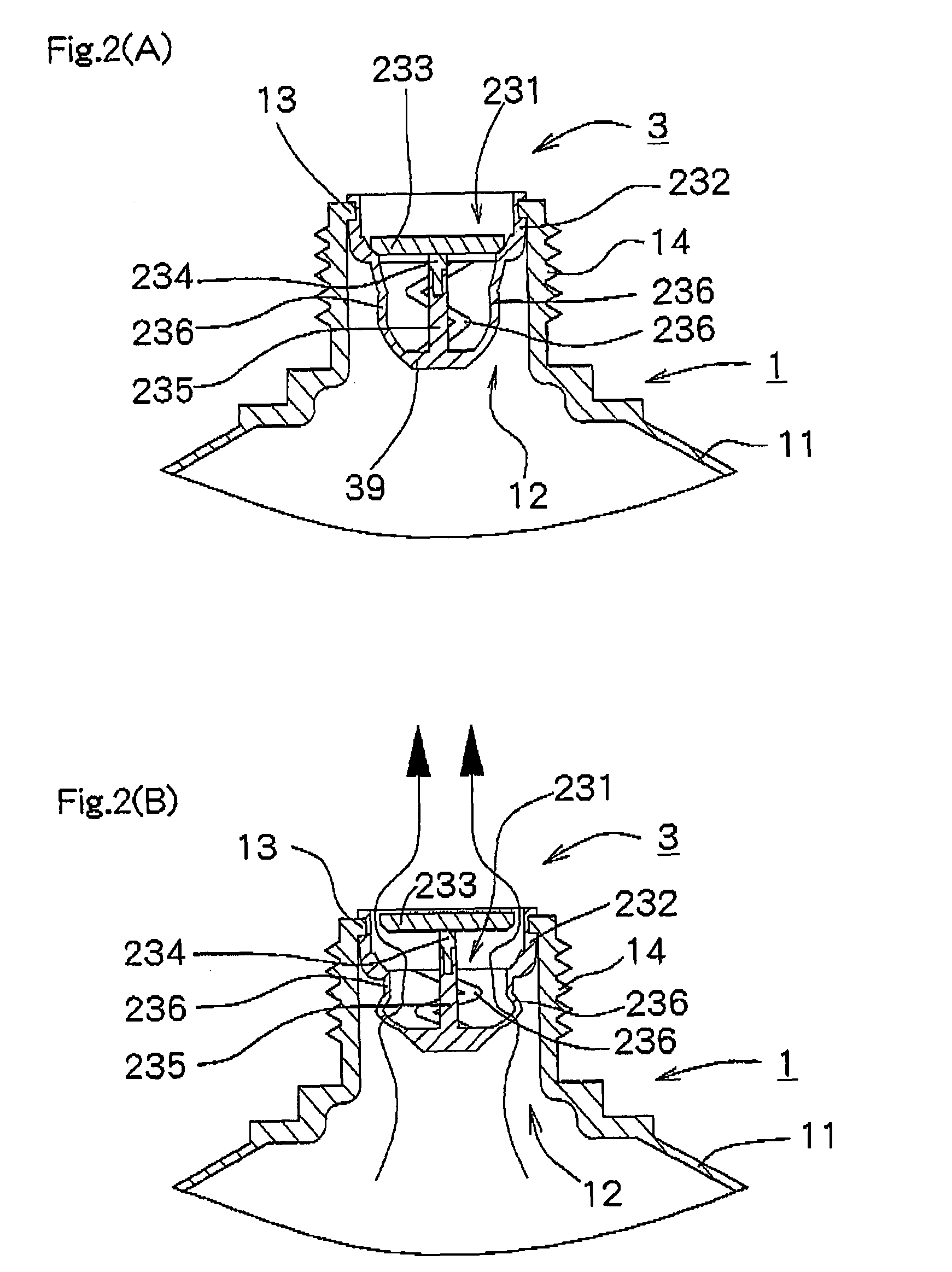Valve mechanism for tube-type fluid container
- Summary
- Abstract
- Description
- Claims
- Application Information
AI Technical Summary
Benefits of technology
Problems solved by technology
Method used
Image
Examples
embodiment 2
[0119]A construction of a tube-type fluid container according to another embodiment of the present invention is described below. FIG. 5 is an exploded longitudinal section of the tube-type fluid container according to the
[0120]In the above-mentioned tube-type container according to the Embodiment 1, the lid material 2 having a construction in which with the female screw portion 222 of the lid material screwing together with the male screw portion 14 in the container main unit, the discharge port 12 of the container main unit 1 is closed, is used. In this Embodiment 2, a lid material 4 having a fluid discharge port 241 at its end is used. The fluid container according to the Embodiment 2 has a construction in which a discharge port 12 of the container main unit 1 and the discharge port 241 of the lid material 4 are communicated with the female screw portion 242 of the fluid container screwing together with the male screw portion 14 of the container main unit 1.
embodiment 3
[0121]A construction of the tube-type fluid container according to the third aspect of the present invention is described below. FIG. 6 is an exploded longitudinal section of the tube-type fluid container according to the present invention.
[0122]In this tube-type fluid container according to the Embodiment 3, a lid material 5 comprising a base portion 51 possessing a fluid discharge port 53 at its center and an upper lid 52 which can hinge with the base portion 51 is used. This tube-type fluid container according to the Embodiment 3 has a construction in which a discharge port 12 of the container main unit 1 and the discharge port 54 of the lid material 5 are communicated with the female screw portion 53 of the fluid container screwing together with the male screw portion 14 of the container main unit 1. Additionally, in this tube-type fluid container according to the Embodiment 3, by causing the upper lid 52 to hinge with the base portion 51, it becomes possible to open / close the d...
embodiment 4
[0194]FIG. 26 is a front view of the tube-type fluid container of the present invention. FIG. 27 is its longitudinal section.
[0195]This tube-type container is used as a container for beauty products for storing gels such as hair gels and cleansing gels or creams such as nourishing creams and cold creams used in the cosmetic field. Additionally, this tube-type container also can be used as a container for medicines, solvents or foods, etc.
[0196]In this specification, high-viscosity liquids, semifluids, gels that sol solidifies to a jelly, and creams, and regular liquids, are all referred to as fluids.
[0197]This tube-type container possesses a container main unit 140, a lid material 110 which is placed at the top of the container main unit 140, and a valve mechanism 10.
[0198]The container main unit 140 possesses a discharge port 441 for discharging a fluid, which is formed at one end of the container main unit, a flange portion 150 (See FIG. 35 and FIG. 36) formed in the vicinity of ...
PUM
 Login to View More
Login to View More Abstract
Description
Claims
Application Information
 Login to View More
Login to View More - R&D
- Intellectual Property
- Life Sciences
- Materials
- Tech Scout
- Unparalleled Data Quality
- Higher Quality Content
- 60% Fewer Hallucinations
Browse by: Latest US Patents, China's latest patents, Technical Efficacy Thesaurus, Application Domain, Technology Topic, Popular Technical Reports.
© 2025 PatSnap. All rights reserved.Legal|Privacy policy|Modern Slavery Act Transparency Statement|Sitemap|About US| Contact US: help@patsnap.com



